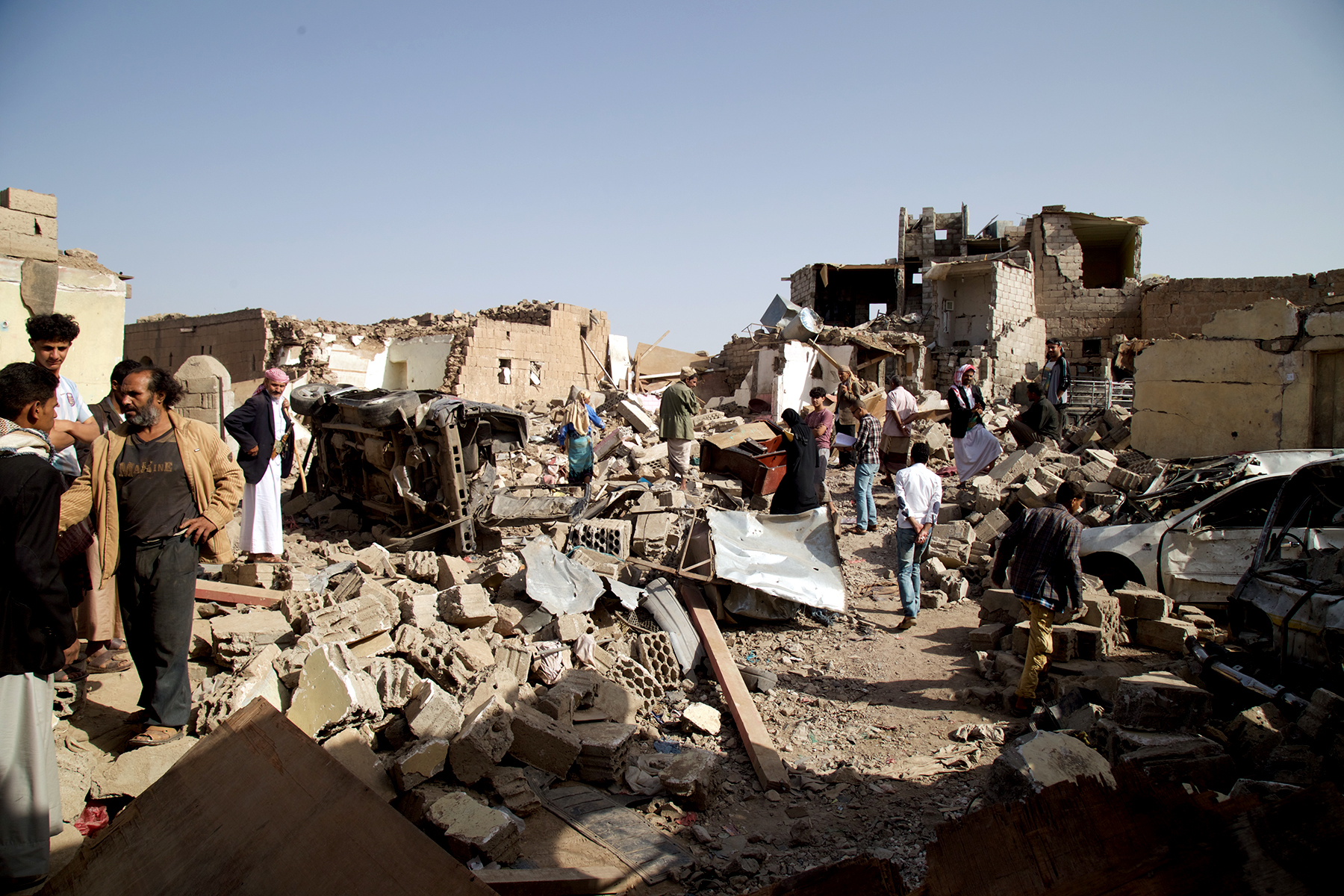With multiple players, factions and proxy wars playing out on its territory, understanding the war in Yemen is not easy. However, what we do know is that since March 2015, a Saudi-led coalition has bombed the country to smithereens. At least 3,200 civilians dead, 5,700 others were injured. And despite a ceasefire signed on 20 March 2016, the bombings have continued. Rights watchdog Human Rights Watch (HRW) has described the bombings and targeting by Saudi Arabia as “indiscriminate, disproportionate [and] fuelled by foreign arms sales”. The impacts on life and property have been so devastating that both HRW and Amnesty International have called on the US, UK and France to stop selling arms to Saudi Arabia until they country begins to abide the laws of war and launch an investigation into the attacks which killed civilians. MISHKA WAZAR rounds up 10 reasons why the world needs to stop selling arms to Saudi Arabia.
- Saudi Arabia and the countries that arm it have not paid enough attention to the evidence of civilian deaths in Yemen caused by coalition airstrikes. If these countries continue to arm a human rights violator which has made little effort to investigate or minimise the violations, they become equally accountable for the abuses.
We refuse to forget about Yemen’s war. STOP selling weapons that destroy lives in Yemen: https://t.co/Vakh08dLiu pic.twitter.com/0zYvMzDn5D
— AmnestyInternational (@AmnestyOnline) March 22, 2016
- The coalition has committed 36 unlawful airstrikes in civilian areas such as schools and hospitals, causing 550 deaths – according to human rights groups. Amnesty International has documented 26 more unlawful strikes, and a Yemeni human rights organisation, Mwatana, have documented an additional 29 unlawful airstrikes from March to October 2015.
“Families were blown up” — scenes from a Saudi-led bombing in Yemen: https://t.co/SwI70voWru pic.twitter.com/cz4KJF6iv9
— The Intercept (@the_intercept) March 22, 2016
- On August 19, 2015, the UN Human Rights Council was called upon by 23 humanitarian organisations to launch an independent and international investigation into these violations. At the time, Saudi Arabia successfully lobbied against the move and blocked the effort.
Like #Brussels, Turkey, Yemen, Ivory Coast and Nigeria have all been hit by recent attacks. https://t.co/Bl1LSDx9jw pic.twitter.com/qaG69qlG4D
— NPR (@NPR) March 22, 2016
- The coalition has also imposed a naval blockade on Yemen which has left 80 percent of the impoverished population in need of aid, creating a humanitarian crisis.
Do not forget #Yemen, it is suffering a humanitarian crisis, @WFP spokesperson @BettinaLuescher urges Geneva press pic.twitter.com/r5592NKEDS
— UN Geneva (@UNGeneva) March 22, 2016
- The coalition has targeted civilian areas such as mosques, markets and residential areas in what the UN Panel of Experts found to be “systematic”. Another violation of proportion is the treatment of the cities of Sa’dah and Maran as military targets, because treating entire areas as a military target prevents civilians from receiving protection against attacks. The use of cluster munitions, which are internationally banned, have also been documented.
UK’s Philip Hammond may be the last person on earth who can’t see Saudi-led abuses in Yemen. https://t.co/dseHC2Wo2t pic.twitter.com/GIAQBWAugU
— Kenneth Roth (@KenRoth) March 22, 2016
- Though the US and UK have stated that their participation in the war is limited to giving advice and training to the Saudi military and refuelling for airstrikes, their involvement may still make them responsible for war crimes and human rights violations even if they have not directly carried out the attacks. It would be in each country’s best interest to stop supporting and arming the source of international war crimes.
#Yemen: millions of people are facing starvation and an acute lack of medical supplies, food & water. https://t.co/IGdNdZnn6W #YemenCrisis
— Oxfam International (@Oxfam) March 21, 2016
- In 2015, the US government and Department of Defence approved weapons deals worth billions of dollars, and sold a variety of ships, ammunition and bombs used in Yemen. The UK government also sold weapons to Saudi Arabia and is currently in talks for a weapons deal with the UAE. Spain has reportedly exported arms to Saudi Arabia worth billions of euros with a new contract for ships for the navy coming along. France has signed an agreement providing helicopters, military boats and spy and communication equipment to Saudi for billions of euros as well.
19.3m people in #Yemen are in need of access to safe drinking water. @UNICEF_Yemen #WorldWaterDay pic.twitter.com/cuRlxfEuSb
— UNICEF (@UNICEF) March 21, 2016
- Between October 2015 and January 2016, numerous Doctors Without Borders (MSF) facilities have been bombed with no explanation or compensation given for the attacks. An MSF hospital has been bombed by the coalition six times in October. A mobile clinic was hit in December, and in January an ambulance and another MSF hospital were hit, with many deaths of patients, staff and civilians reported for all strikes.
DC “foreign policy community has been relatively quiet on America’s involvement backing Saudi Arabia’s war in Yemen” https://t.co/IhoNACx09x
— Arash Karami (@thekarami) March 21, 2016
- When the Saudi military conducted a private investigation into violations, only one airstrike was found to be a violation: the bombing of the Doctors Without Borders hospital on 26 October 2015. The investigation termed the result of the strike to be due to human error but no accountability was held nor was any compensation discussed.
Heartbreaking. We failed to protect and now extremely precious part of very long & deep heritage of #Yemen gone.. https://t.co/wsAMy9iJdK
— Hisham Al-Omeisy (@omeisy) March 21, 2016
- On 31 January 2016 the coalition created a committee to assess its participation in the war and recommend better methods of following the laws of war, however the committee doesn’t allow for investigation into the unlawful attacks against civilians or compensation for victims.
We are telling children in Gaza, Yemen, Syria, Iraq and other countries that since some countries are more powerful, they can bomb you. 💣 🌸
— گنیت (@lets_be_humane) March 21, 2016









